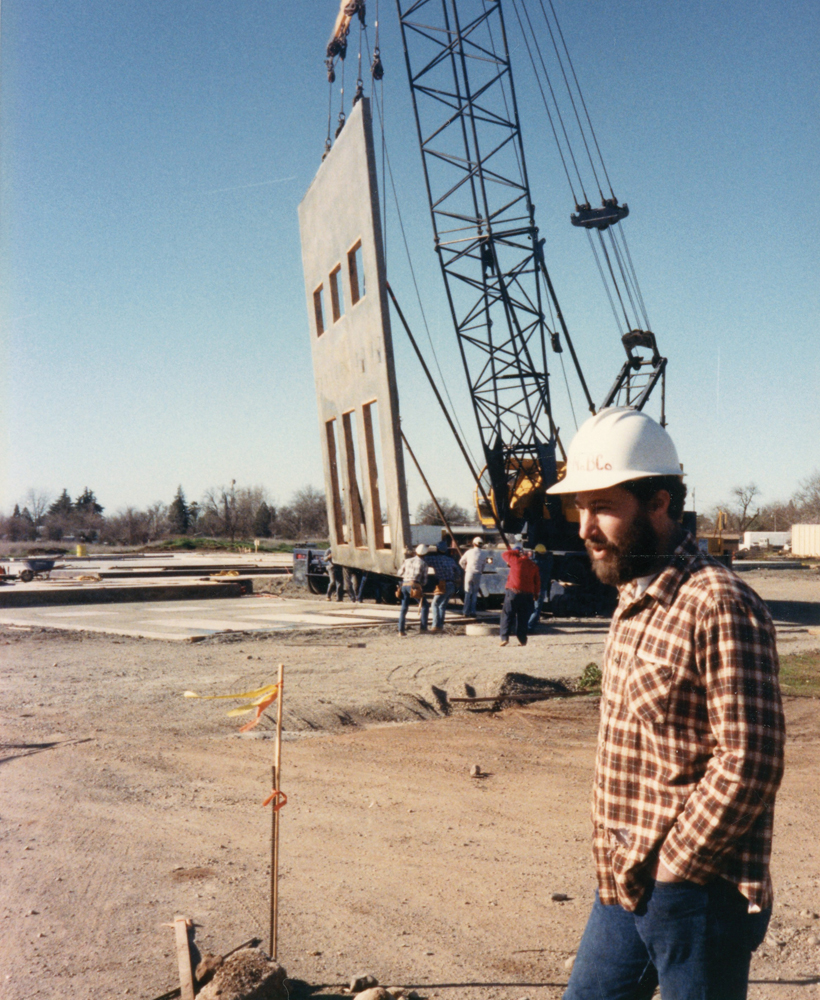Reflecting on the early American craft beer boom of the 1980s, he comments, “We were frustrated with some of our peers who were contract brewing and just being able to order beer when we had built the equipment—oftentimes I had to weld and fabricate things just to make a part or a piece. I wouldn’t say I felt resentment by any means, but it was a very different situation from today where you can go online and solve problems that took us weeks or months to sort out on our own. I appreciate the level of knowledge that’s been built and published for craft brewers, and I certainly avail myself of a lot of that.”
Sticking to instincts, Grossman and Camusi got a big break in May of 1986 in the form of a feature article in San Francisco Examiner, an influential regional publication. Sales skyrocketed and they frantically began searching for a new location to build a bigger brewery, having maxed out at 7,000 barrels that year.
Grossman cracks his first laugh of the hour-long interview when I ask, “At what point did you realize that this crazy idea of starting a brewery from scratch would work?”
“What?” he asks. “You think starting a brewery was crazy?”
Yes, actually. Few businesses survive going against demographic and/or economic currents. Grossman started out in the dark ages of American beer, when the number of breweries was at an all-time low. Those that existed were lowering the alcohol and bitterness of beers.
He answers, “That finally set in, I don’t know, early 1990s. In the late 1980s I started to realize that I had a real business. Before that, in the early 80s, it was still sort of—I wouldn’t say a hobby, but a kind of pipe dream, still a bit tenuous and not assured of success. When we moved to this larger brewery in 1988 the business had been running almost ten years so we were able to borrow a little bit of money and it seemed we were going to have a successful business operation at the size we were, which was about 20,000 barrels.”
With that success, however, came a different kind of hardship. Grossman is, even self-admittedly, a workaholic. His business partner was not. Tensions grew from that over compensation, equity and ownership. As Grossman details in his book in painful detail, it was only resolved through lengthy and expensive litigation. What can brewers and business owners starting out these days do to avoid potential conflict?
Grossman breathes deeply before answering, “Partnerships are like marriages and the amount of divorces in this country are increasing. It’s not uncommon for business ventures with partners to reach a point where they are not on the same page and that requires a change in ownership. So be careful. Some partnerships work out and people share the load.”
Indeed, the original attorneys that helped them structure the company had prophetically cautioned them that, “a 50/50 partnership was just like a marriage, and that (they) both had to work hard to make it successful.”
On the even more delicate topic of his own marriage and family, Grossman expresses not regret, per se, but a kind of wistful acceptance.
“That’s the tough part—being self-employed, being in a business as all-encompassing as brewing. It takes a toll on family and free time and that’s been one of the bigger challenges to manage. Most brewers I know are passionate about their beers and their companies. Breweries tend to be very demanding and it does affect their personal and home life.”
This article was published in Japan Beer Times # () and is among the limited content available online. Order your copy through our online shop or download the digital version from the iTunes store to access the full contents of this issue.




